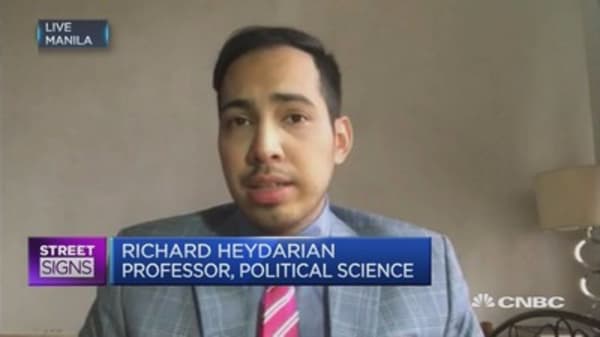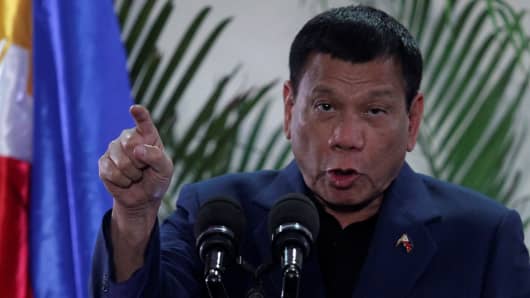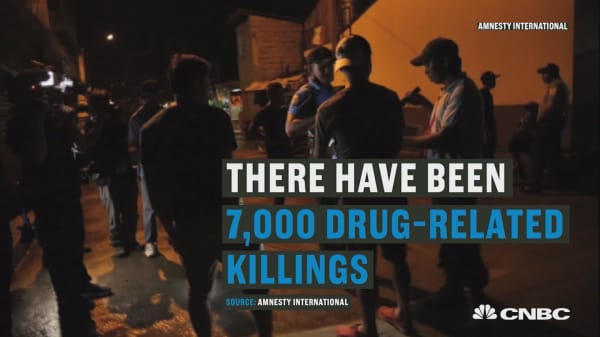We'll leave peace with the Moro communists and liberationists in Mindanao for another column. So too, the insurgent splinter groups that have decided to radicalize and fight under the black flag of IS.
Enough to talk about average Filipinos, one in four of whom still lives below the poverty line, just trying to get by day in, day out.
Heydarian, who also advises hedge funds, said their lot hasn't gotten much better. Not with the economy and foreign investment slowing, business confidence eroding, and with the peso one of the worst performing currencies in Asia this year.
That affects Filipinos where it hurts the most — in the pocket. The billions of dollars remitted from those working abroad may be worth a whole lot more when converted to pesos at home, but a weaker currency also likely makes everything they buy, including imports, more expensive. And because consumption's a huge part of the Philippine economy, inflation could adversely affect not just growth, but job creation and wages.
And on top of an economic struggle, those people also now fear for their family's and their own lives.
Still, Heydarian said life could get even tougher for them: "The Philippine economy could get very hurt by Western countries who are concerned about the Philippines' human rights."
He said up to $400 million in development aid to the Philippines could be at risk of being cancelled. Additionally, the European Union could withdraw special preferential treatment for Philippine imports.
The West also may not favor Duterte's geopolitical embrace of China. Strongest evidence of that was Duterte's call not to rub in Beijing's face a Hague ruling last year rejecting China's claim to most of the South China Sea. And, of course, his acceptance of billions of dollars in investment from China.
The irony, Heydarian said, is that any backlash from the West could "push Duterte more into the embrace of China." He noted, though, that the president is facing significant pushback from the Philippine military establishment, which is much more comfortable with the U.S. and the West.
For now, Heydarian said he believes Filipinos are giving Duterte the benefit of the doubt — but for lack of any better alternatives.
"I think this has very much to do with declining public confidence in the democratic institutions in the country," he said.
Commentary by CNBC's Martin Soong, who covered the presidential election in the Philippines in May 2016.
For more insight from CNBC contributors, follow @CNBCOpinion on Twitter.
Clarification: This story has been updated to clarify the impact of a weaker peso on the Philippine economy.






